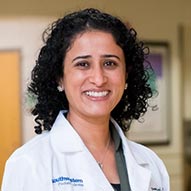Dallas
214-456-2740
Fax: 214-456-6898
Plano
469-303-0055
Fax: 469-303-0655
Dravet syndrome is a rare, severe form of epilepsy in children. Children with this genetic syndrome have frequent seizures that can last up to 45 minutes or longer.
Our experts at Children's Health provide the most advanced procedures and therapies in our region to treat children with Dravet syndrome. We have nationally recognized epilepsy centers at our Dallas and Plano locations, meaning you and your child can expect the highest quality of care.
214-456-2740
Fax: 214-456-6898
469-303-0055
Fax: 469-303-0655
Dravet syndrome appears in the first year of life in an otherwise healthy baby. Fever or infection triggers a very long seizure (a quick, uncontrollable disturbance in the brain). Children with Dravet syndrome often need to go to the emergency room because their seizures are so long (usually between 30 and 45 minutes). Most children with Dravet syndrome develop a developmental disability as they grow older. These developmental issues are related to the intense and frequent seizures and the genetic mutation, which impacts brain development.
Most babies with Dravet syndrome have a seizure where only one side of their body is shaking (known as a hemiclonic seizure) or have a full-body shaking seizure (called a generalized tonic-clonic seizure). As a child gets older, they might experience other types of seizures like:
A child might also experience:
During a detailed physical exam of your child, your Children’s Health℠ doctor will ask about your child’s medical history and family’s medical history. We will also try to learn as much as possible about how the seizure started and what you observed.
We might prescribe the following tests:
Dravet syndrome is caused by a gene mutation.
There is no cure for the disorder, but children with Dravet syndrome benefit from the following treatments and therapies:
At Children’s Health, we have the expertise and resources to help your child with any issue they may experience with Dravet syndrome. For example:
We know a Dravet syndrome diagnosis can be frightening, but our world-renowned team of neurologists is here to help.




Children with Dravet syndrome might have a shortened life expectancy because they are at higher risk for sudden unexpected death in epilepsy (SUDEP). This happens when a child with epilepsy dies unexpectedly after a seizure (usually at night). We don’t know what causes SUDEP. However, we recommend measures to monitor for SUDEP and aim for the best possible seizure control to decrease its risk.
While Dravet syndrome does not get worse over time, your child may continue to experience epilepsy episodes throughout their life along with impairments in cognitive development, mobility and behavior.